Robust youth sport critical to community development, founder says
Why It Matters
Inclusive youth sports organizations can give youth a place to belong, but volunteers need to be engaged and diverse to attract racialized and immigrant communities. Giving youth an opportunity to participate in sport helps prevent them from engaging in other risky behaviours, including gang involvement and substance abuse.
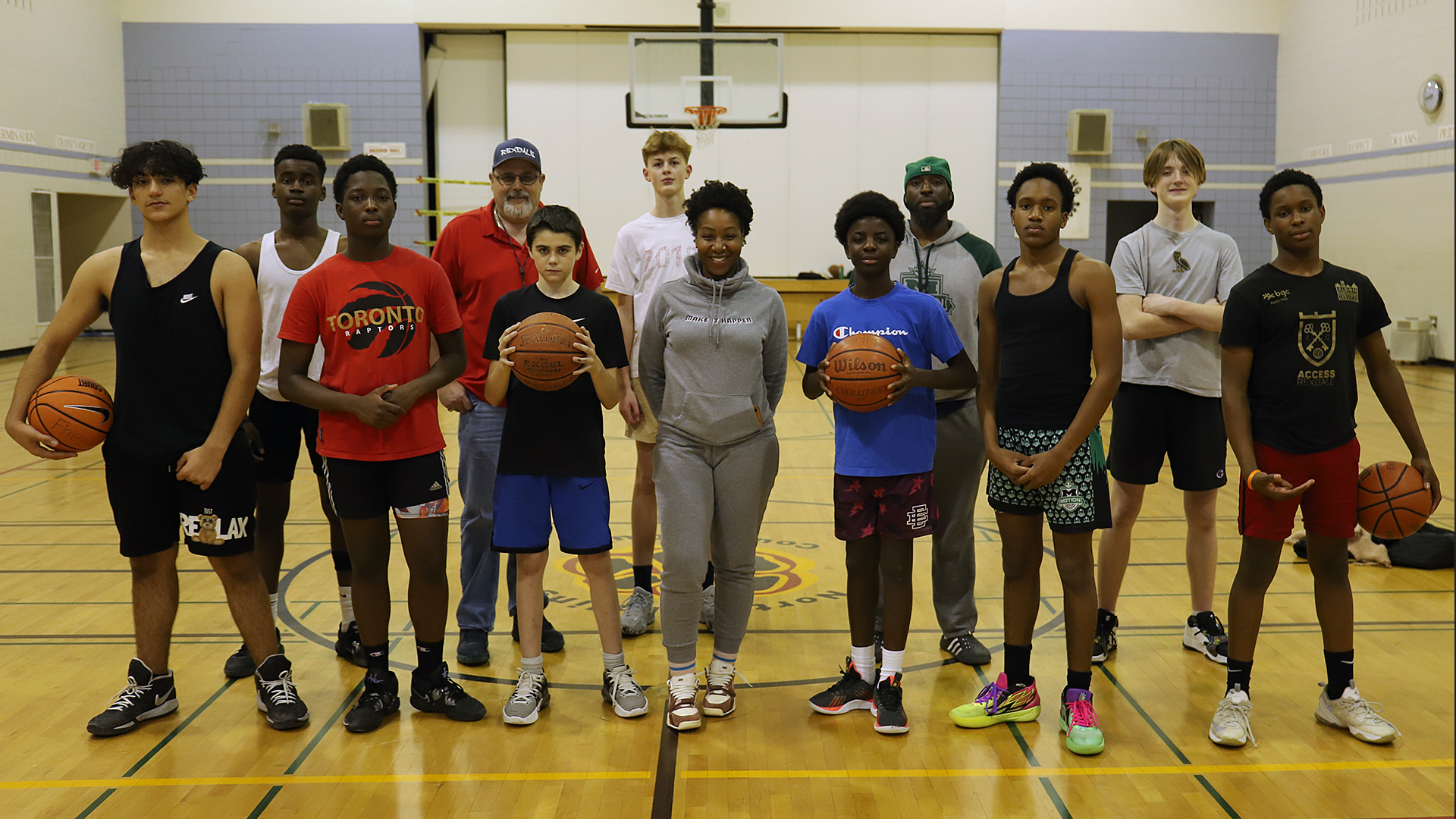
This independent journalism is supported by Canadian Tire Jumpstart Charities. See our editorial ethics and standards here.
It’s 25 kilometres from North Kipling Junior Middle School (NKJMS) to the Scotiabank Arena as the crow flies, but far closer in the imagination of the young Motion Ball Sports (MBS) athletes sweating on the school’s hardwood.
It’s not an impossible dream – two players from Rexdale are currently in the NBA. Delano Banton’s number with the Toronto Raptors honours the 45 Kipling bus he rode, and on this night, Eugene Omoruyi’s Washington Wizards were visiting the Philadelphia Sixers.
However, there was much more than dreaming inside NKJMS as young athletes stretched and warmed up, settling into routine.
“Do it as a team,” coach Sheldon Bartley instructed quietly as the kids completed a full-court drill.
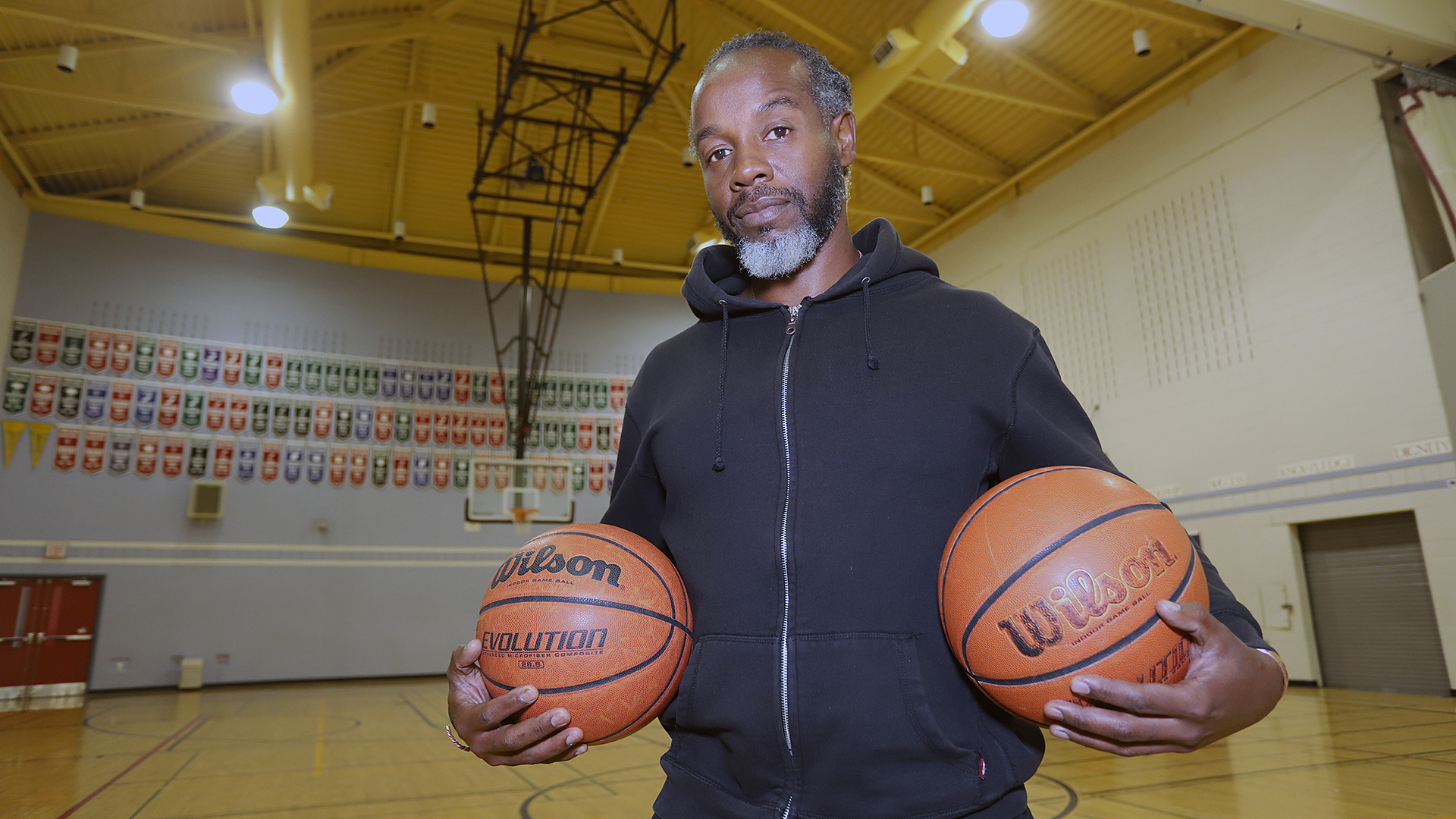
“If I don’t end up going to the NBA, I’m always going to remember this,” summed up Azeem Wahab, a two-year MBS participant whose 2017 emigration from Africa to Rexdale passed through New York.
“Because they’ll always be here for me.”
MBS founder Chris Campbell was one of those kids, the son of hard-working immigrants. A sports nut whose love for basketball trumped his first love of track and field, Campbell brings street cred to his 20-year commitment.
Every volunteer is respected and appreciated, but he said there is value in Campbell having walked the same Rexdale streets his players do, attended the same schools, and faced similar challenges.
Additionally, he has built a successful career and productive life in their shared neighbourhood. Running into players at the mall or in local restaurants adds lived experience mentorship to on-court instruction.
“It’s very important these kids see themselves with us coaching, the administration staff,” Campbell said.
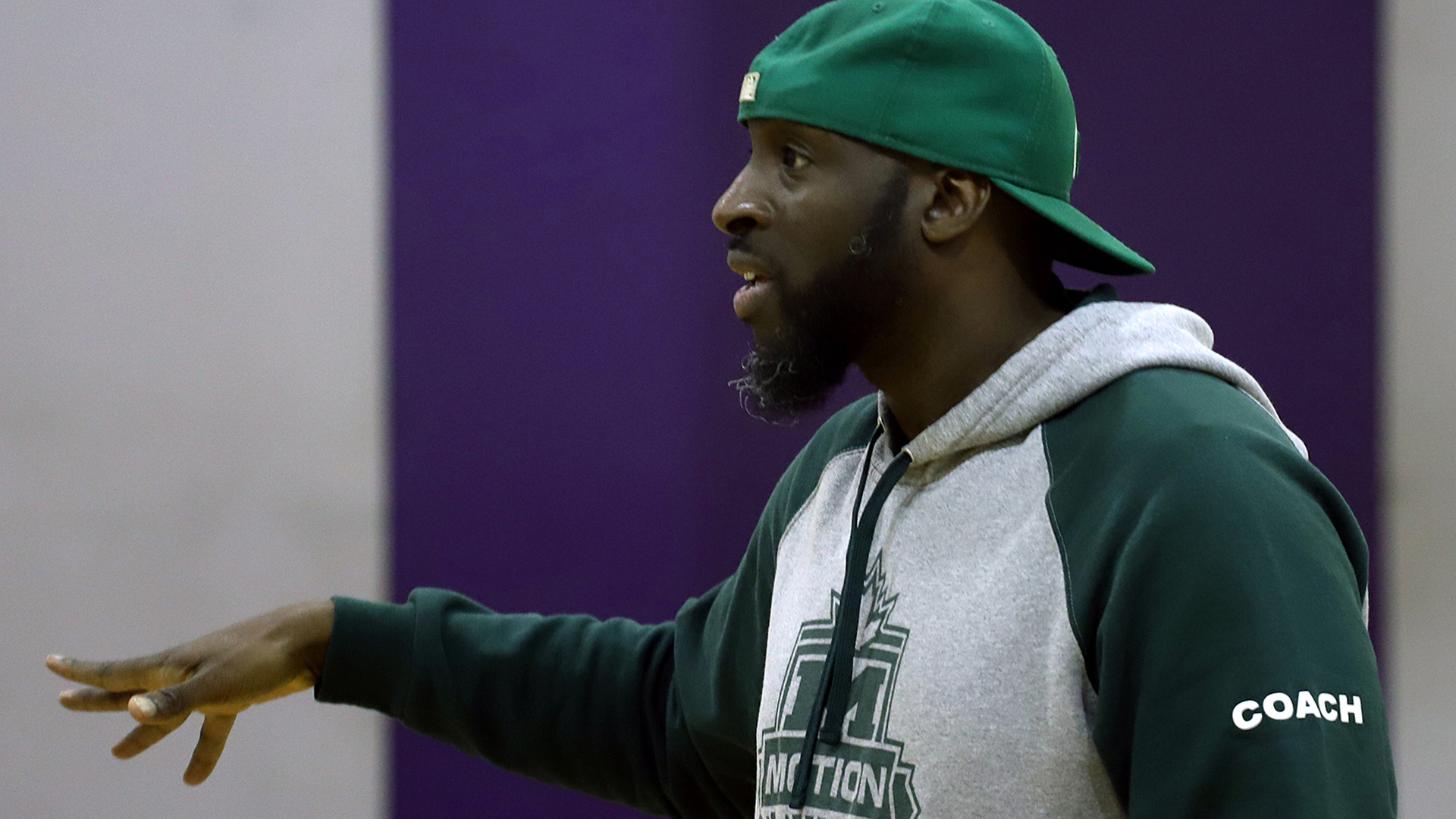
Coach Chris Campbell makes a point to the Motion Ball Sports U15 boys. (Jeff Tribe/Future of Good)“(They can understand) ‘It’s someone who probably really does care about what’s happening.’”
MBS is an inclusive and diverse organization; Campbell and others help Black and other participants see themselves reflected in positive leadership roles.
“You want to be able to tap into someone who probably experienced the same things that you did.”
Campell worked with Omoruyi during his youthful transition from soccer to basketball, and other program participants play at high school, post-secondary and professional levels.
But MBS also emphasizes off-court achievement during its sports programming, which Campbell said doesn’t get its due as a positive force shaping lives, opening doors to much more.
“You want these kids to engage in that synergy and excitement and enthusiasm, but you also want them to learn.”
An indifferent student in Grade 6, he credits his father’s intervention and the discipline he learned in sports with helping him find his career path.
A basketball scholarship may lead to subsidized education, but principles and lessons learned through athletics also contribute to career development and raising a family.
Everyone likes championships, but Campbell equally values progression through effort, from increasing rebounds on the court to raising a student’s academic average.
“If you’re able to move up … that’s success.”
Motion Ball Sports’ ‘full-court press’ for volunteers
Campbell said that donations and sponsorships provide welcome support, but MBS could never have evolved and expanded without volunteers. Finding and retaining them is complicated, given the time requirement and expenses against rising living costs.
Campbell said MBS generally recruits using traditional methods, including the organization’s volunteer portal on its website.
“But it’s really word-of-mouth – word-of-mouth has been a lot of it,” said Campbell.
Historically, parents and teachers will contact a family member or player they feel should be involved.
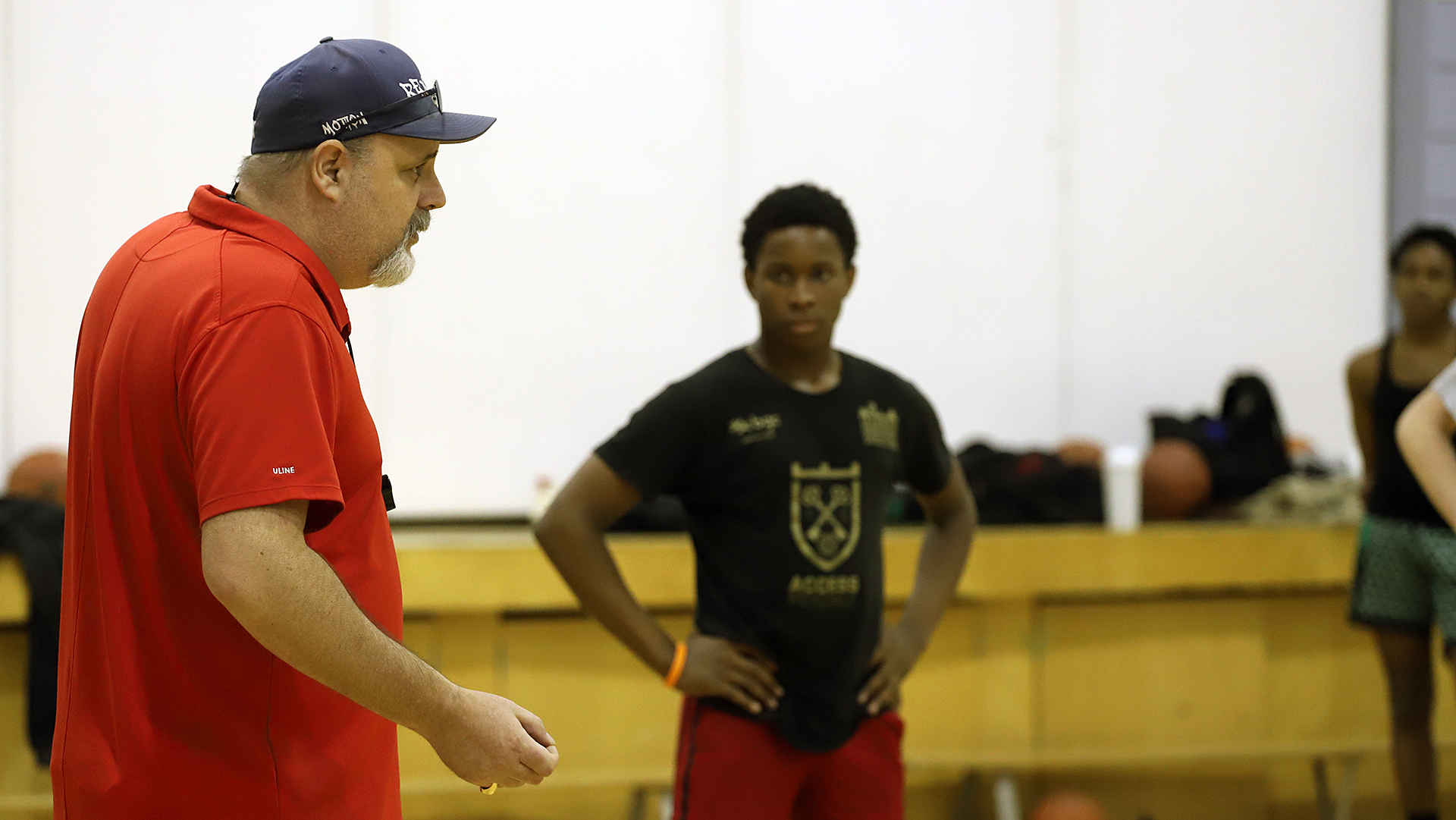
“Other mentors liked what I was doing and came on board. Teachers liked what I was doing and came on board.”
Parents also play an invaluable role in organizing and volunteering for the group.
Sherifa Brown’s son, Nazhia, is on the MBS Express U15 boys’ squad.
Apart from contributing to the collective good, the self-described ‘Momager’ (mother who is also the sports team manager) – said she enjoys engaging in her son’s life when she fears losing him to “girls and video games.”
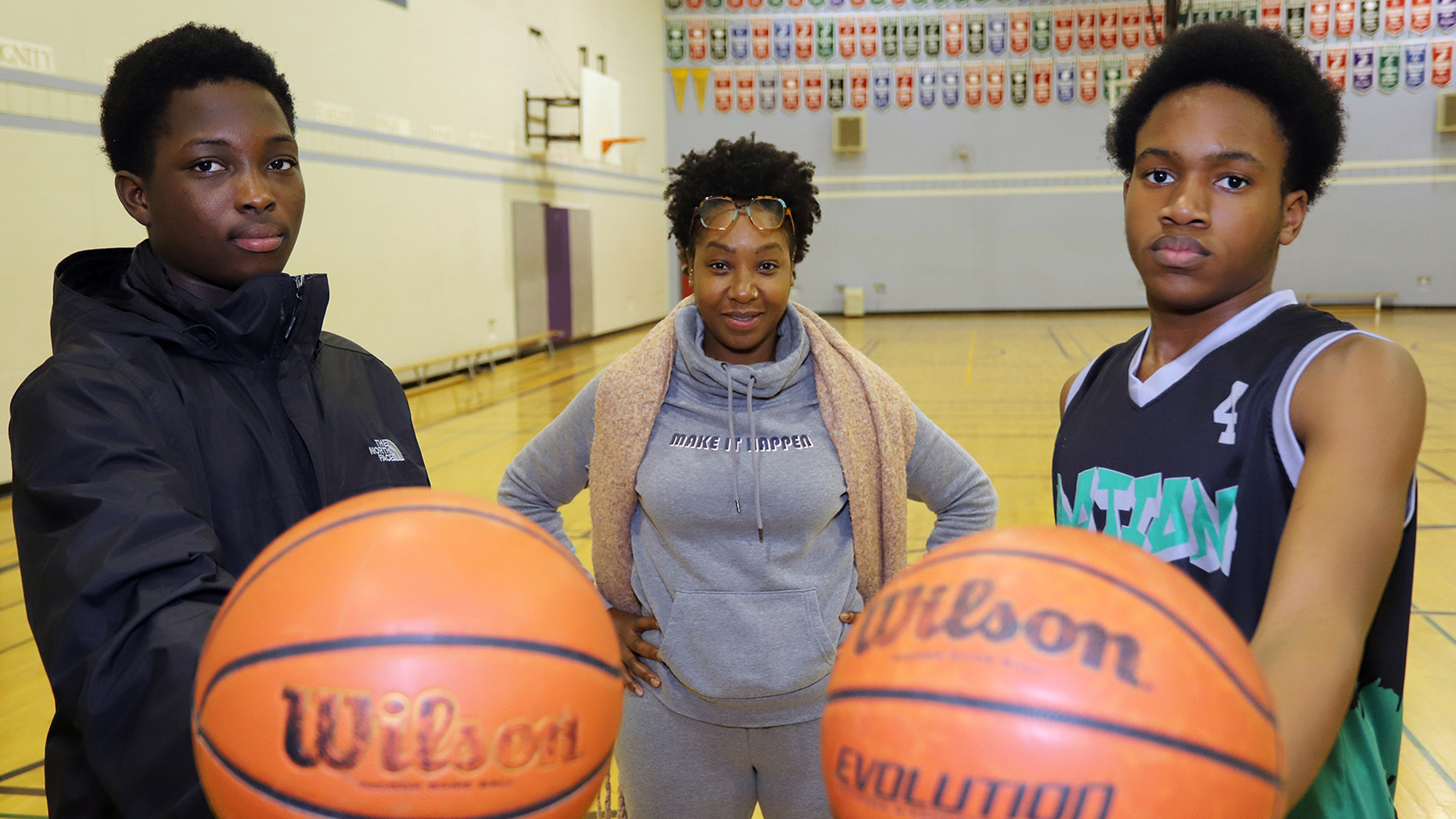
Brown appreciates what the organization gives back to the community, adding she wishes the opportunity was available to more young people.
“You see how they benefit from it.”
But it’s not just parents who volunteer – Campbell said he enjoys it when former participants in the program come back to help with the next generation of players.
“That lets me know you really, really valued what was happening to you, and you sincerely know you need to give back something.”
One of his favourite examples is current volunteer David Anderson, a Grade 9 starter at the time, who tended to be missing in action on Mondays as that was his regularly scheduled “date night,” much to the chagrin of his coaches.
Since then, Anderson has returned to help run and fundraise for the MBS Black History tournament, helped put kids in clothing, worked at camps and created a social media presence.
“I bug him about ‘date night,’” Campbell laughed. “But just to see how much he’s contributed back is amazing.”
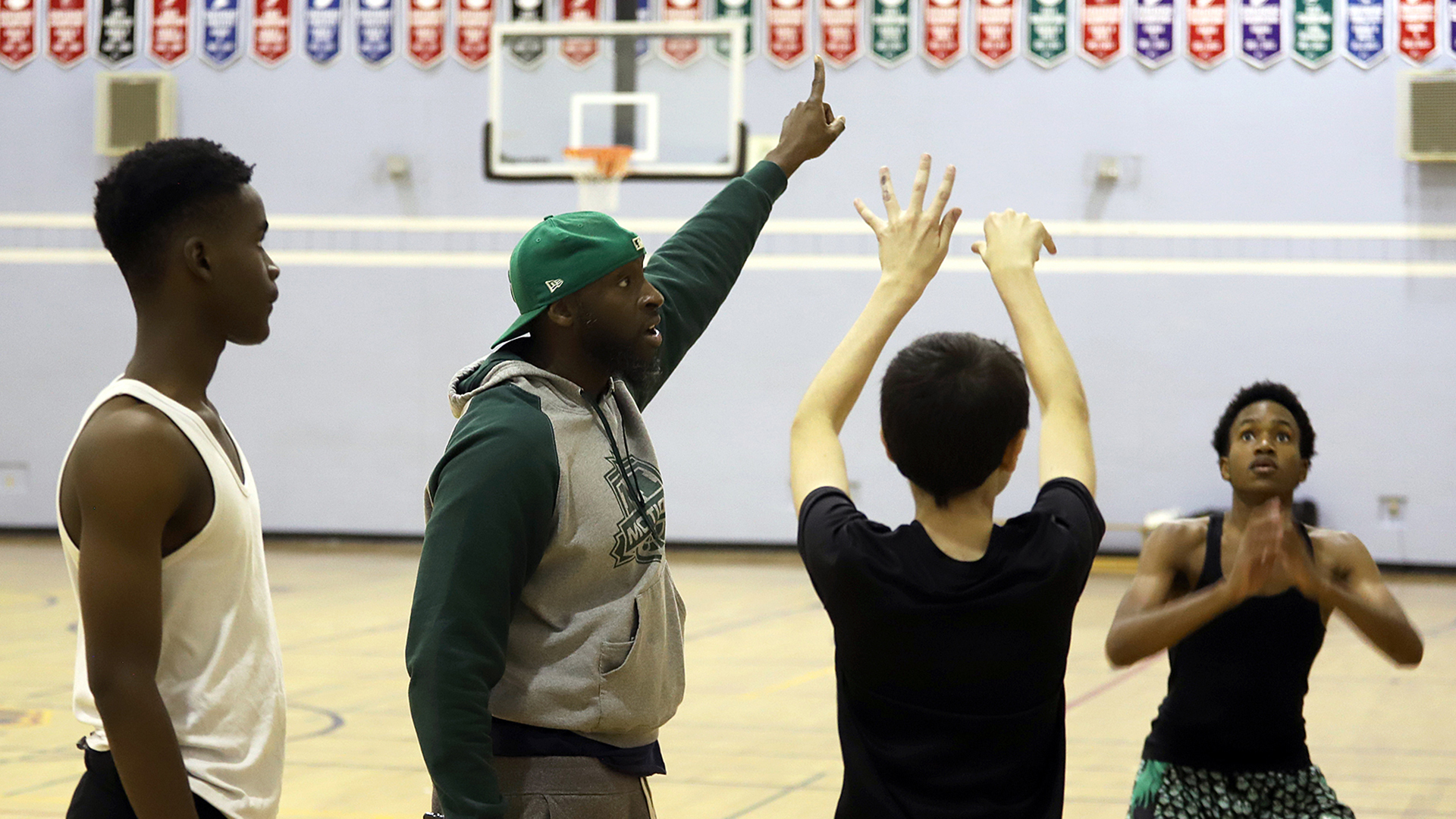
Campbell is also looking for volunteers when he’s at other sports events.
A North Albion Collegiate alumni, he ran into former Martingrove Collegiate Institute competitor Dwayne Burton at a Toronto Argonauts football game years ago.
“I go, ‘You know what, we used to play against each other, but I need you.’”
The former rival, who had gained experience playing basketball overseas, laughed, responding that Campbell had happened to catch him when he was looking for an opportunity to contribute.
Burton would later become one of the MBS program’s founding coaches, taking a bus from his downtown Toronto residence and returning to help.
More than basketball
Over the years, the organization has reached beyond its goal of providing basketball to youth, which includes anger management, team-building, and conflict resolution.
Campbell also seeks grants to fund senior student youth tutoring.
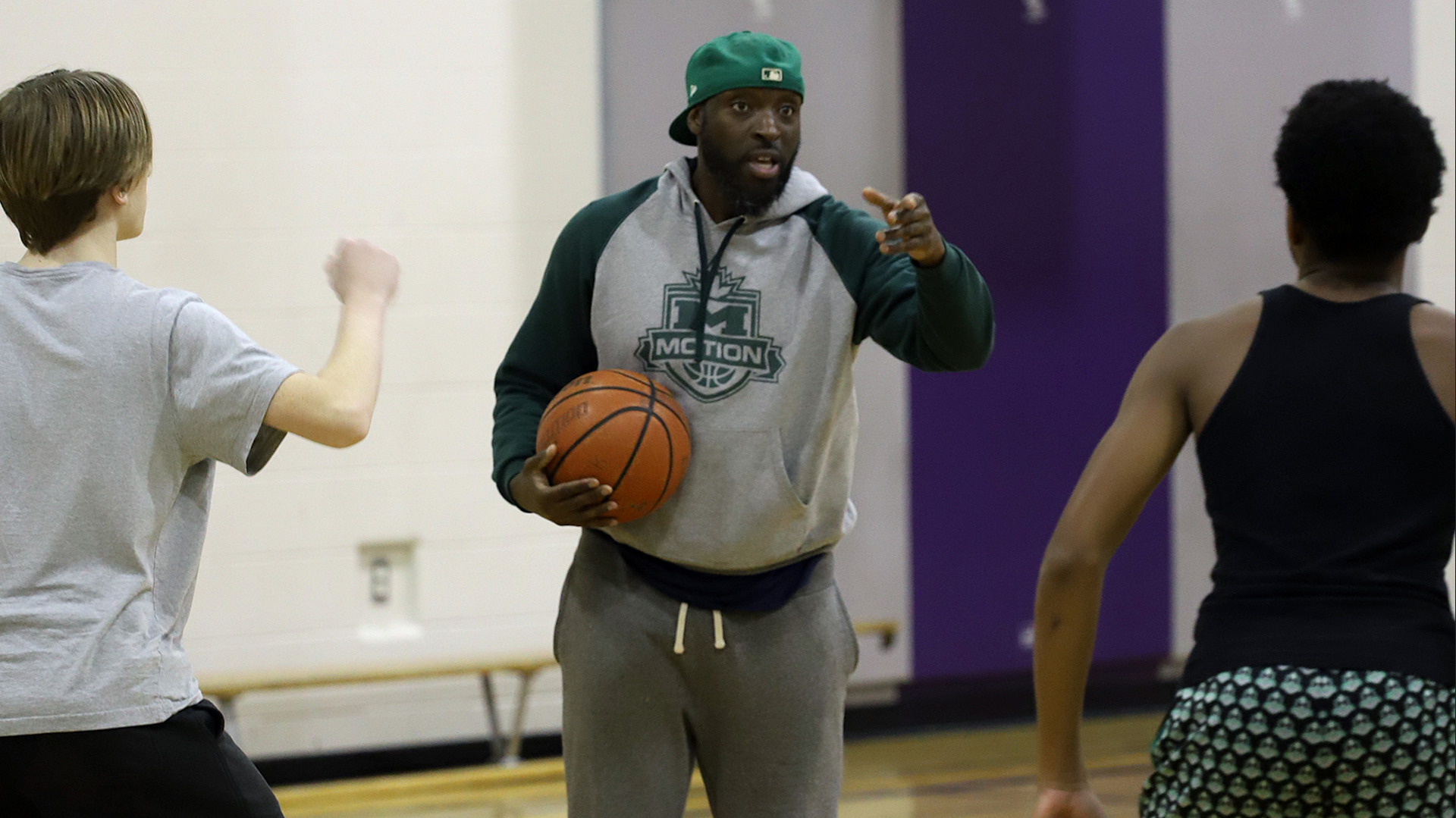
“Conflict on the court or the field is one thing, but conflict outside … It can get escalated high, really, really quickly.
“Taking sports and funnelling that emotion to what we do out on the streets also helped as well.”
However, his ultimate goal of providing elite basketball programming with value-added dimensions, including Black history education at about half the cost of other programs, is complicated by rising expenses for things like renting facilities and insurance.
This means the chance of losing kids who “really, really need this more than kids who can afford it,” said Campbell.
“Dollars and cents and saving someone’s life or saving them from jail time or saving them from a criminal record?
“It doesn’t make sense to me. I’d rather find the dollars and cents to keep them engaged.”
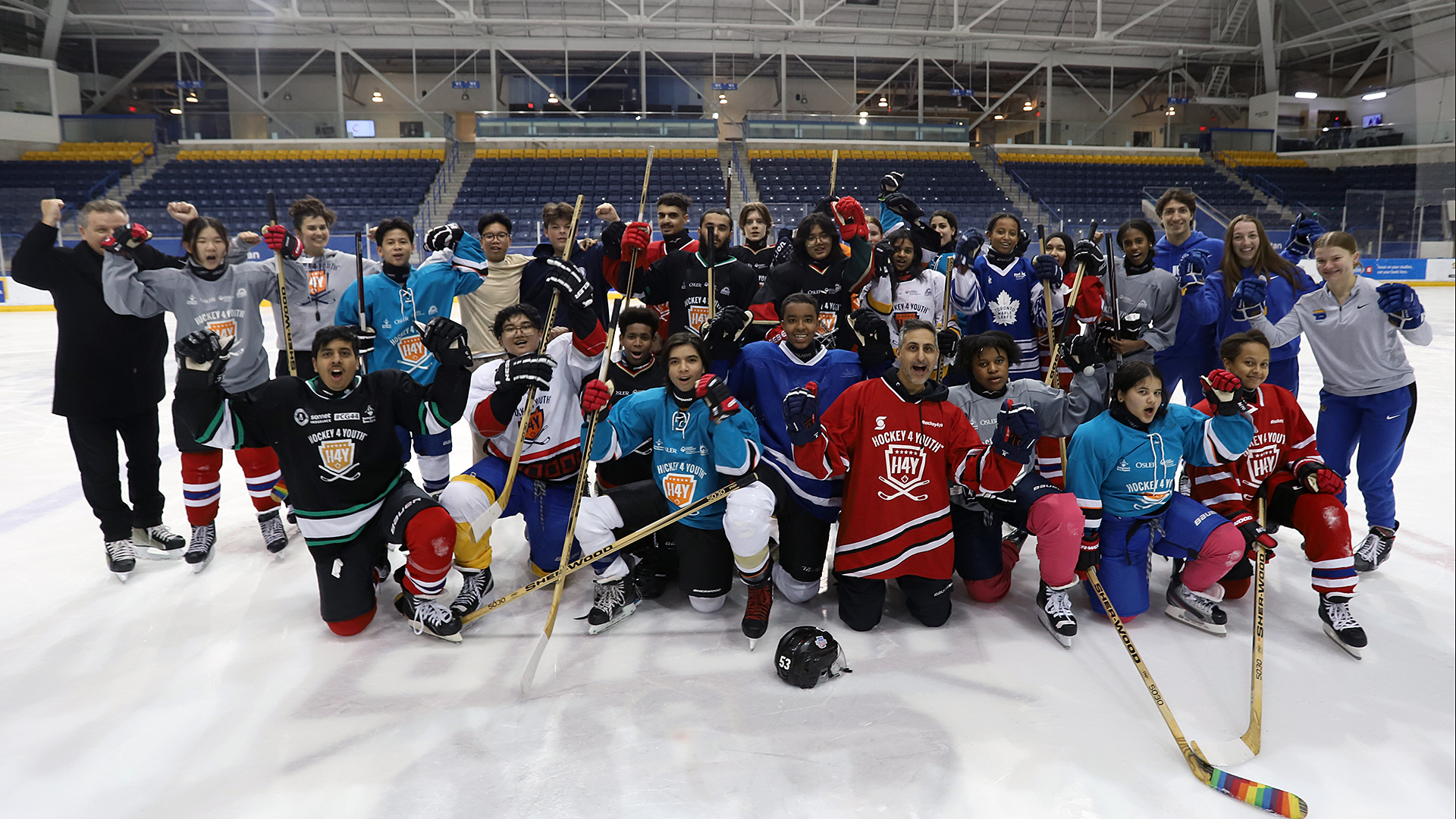
Hockey 4 Everyone
Keelin Farren sees something of herself in Canada’s newest hockey players learning their craft inside one of the country’s most historic locations.
More importantly, Farren hopes the Hockey 4 Youth (H4Y) participants that her volunteerism supported can see something of themselves in her – representation and possibility.
“It’s important to see what they can achieve,” said the Toronto Metropolitan University Bold women’s hockey team alumni, following a practice inside the former Maple Leaf Gardens.
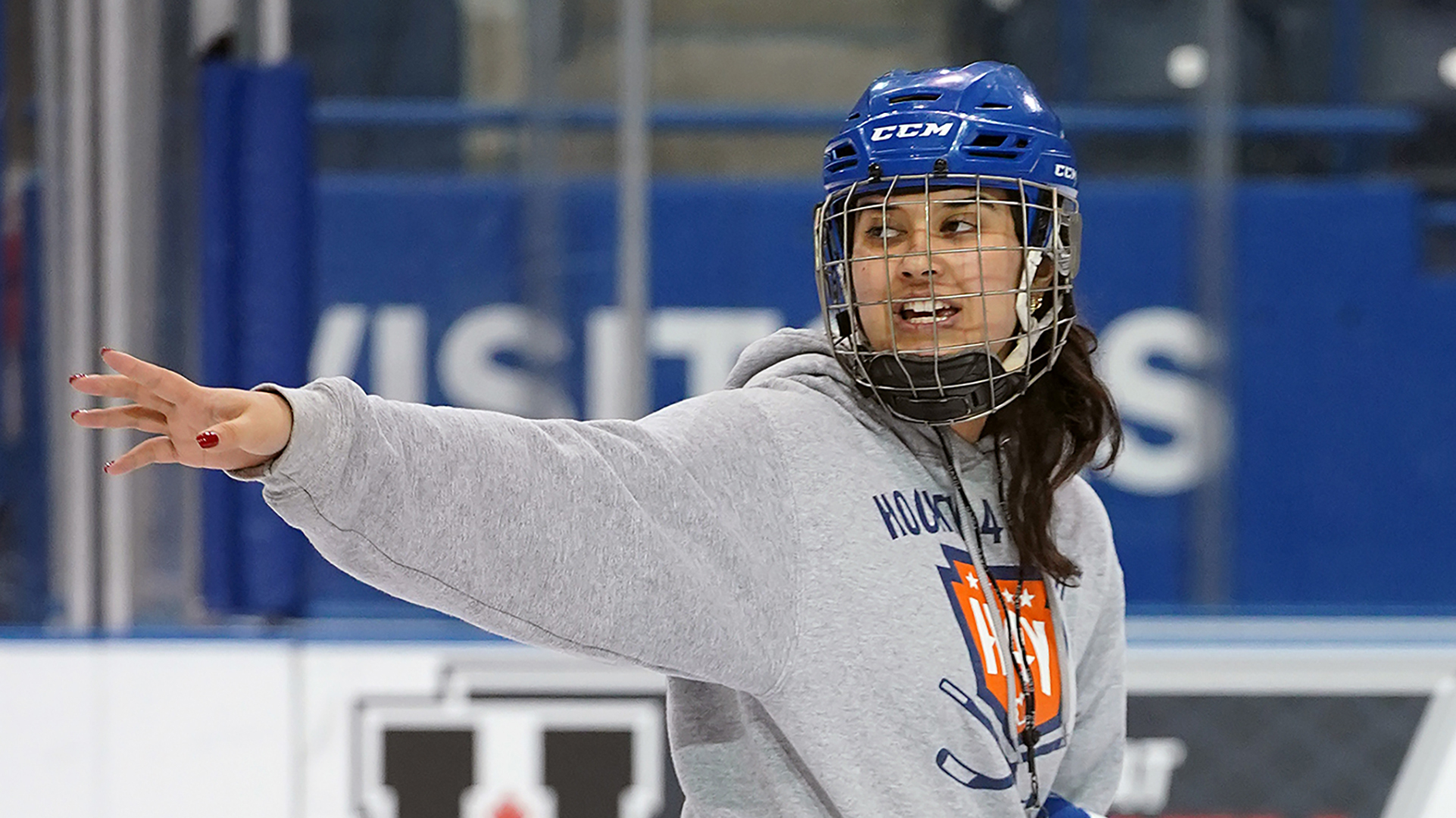
Her parents came to Canada as children, her father from Scotland, and her mother from Bangladesh. The marriage of a paramedic and college professor respectively created privilege for their daughter, who was on the ice at three and was an enthusiastic hockey and soccer player from there.
Farren began volunteering with H4Y in her second year of TMU Bold varsity hockey and continues post-graduation while pursuing a teaching career.
“(The players are) all amazing,” Farren smiled. “And we try to make it fun.”
The smile on Meshna Prasai’s face following her second on-ice session speaks to the truth of Farren’s goal of having fun.
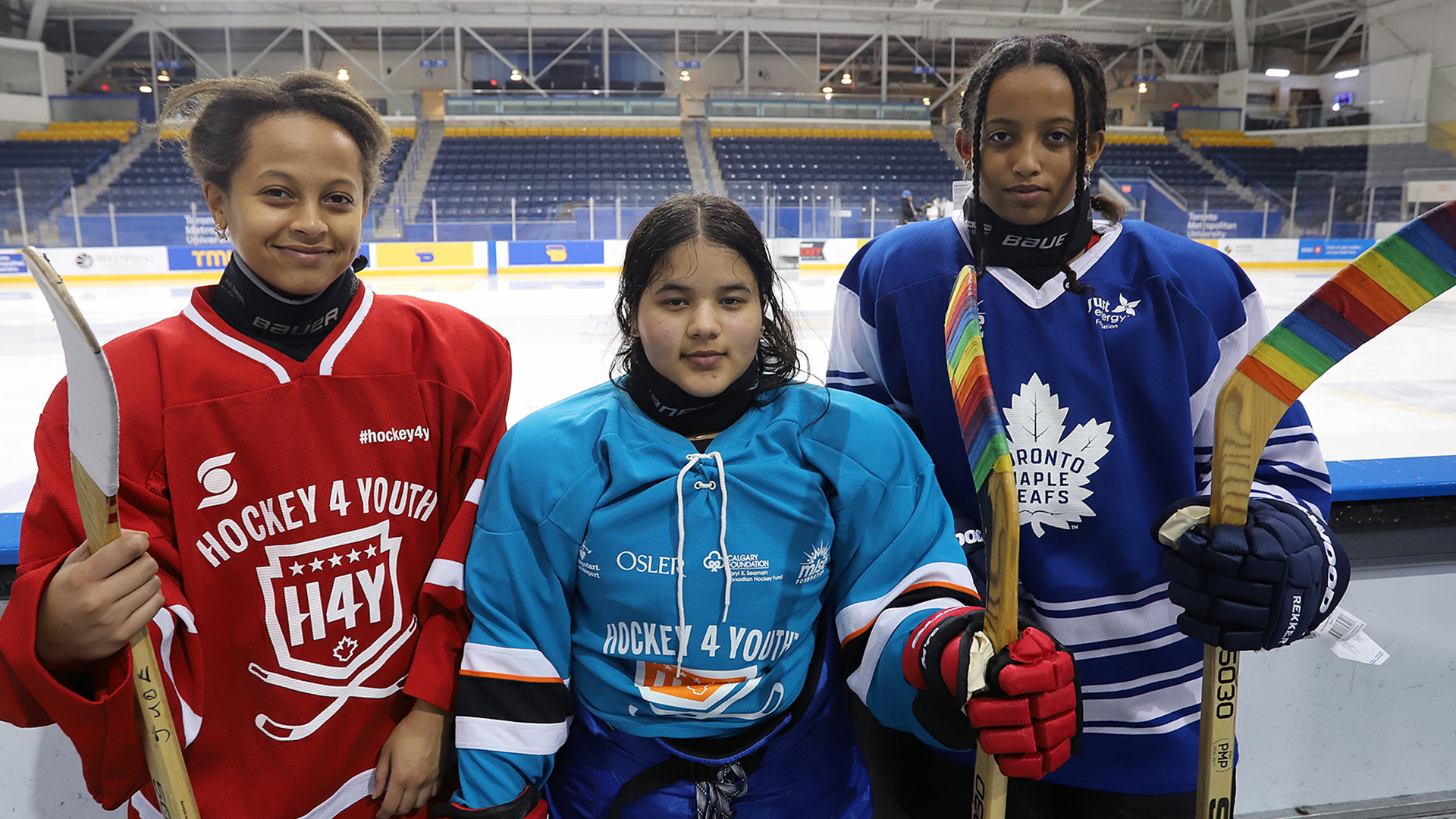
“I’m afraid of trying new things and didn’t think I’d ever,” confessed the former resident of Nepal.
Her friends, siblings Hanna and Maraki Bekele, who left Ethiopia two years ago, were broadening their athletic horizons from soccer, basketball, volleyball and floor hockey.
They were encouraged by watching figure skating and hockey on TV, where they said it seemed a lot easier than their debut revealed.
“Once you learn, it’s fun,” said Maraki.
“You learn new skills and make new friends,” Hanna agreed.
Internal research done in 2015 states that 71 per cent of new Canadians were interested in playing hockey, said H4Y founder and Executive Director Moezine ‘Moe’ Hasham, but only one per cent got the chance.
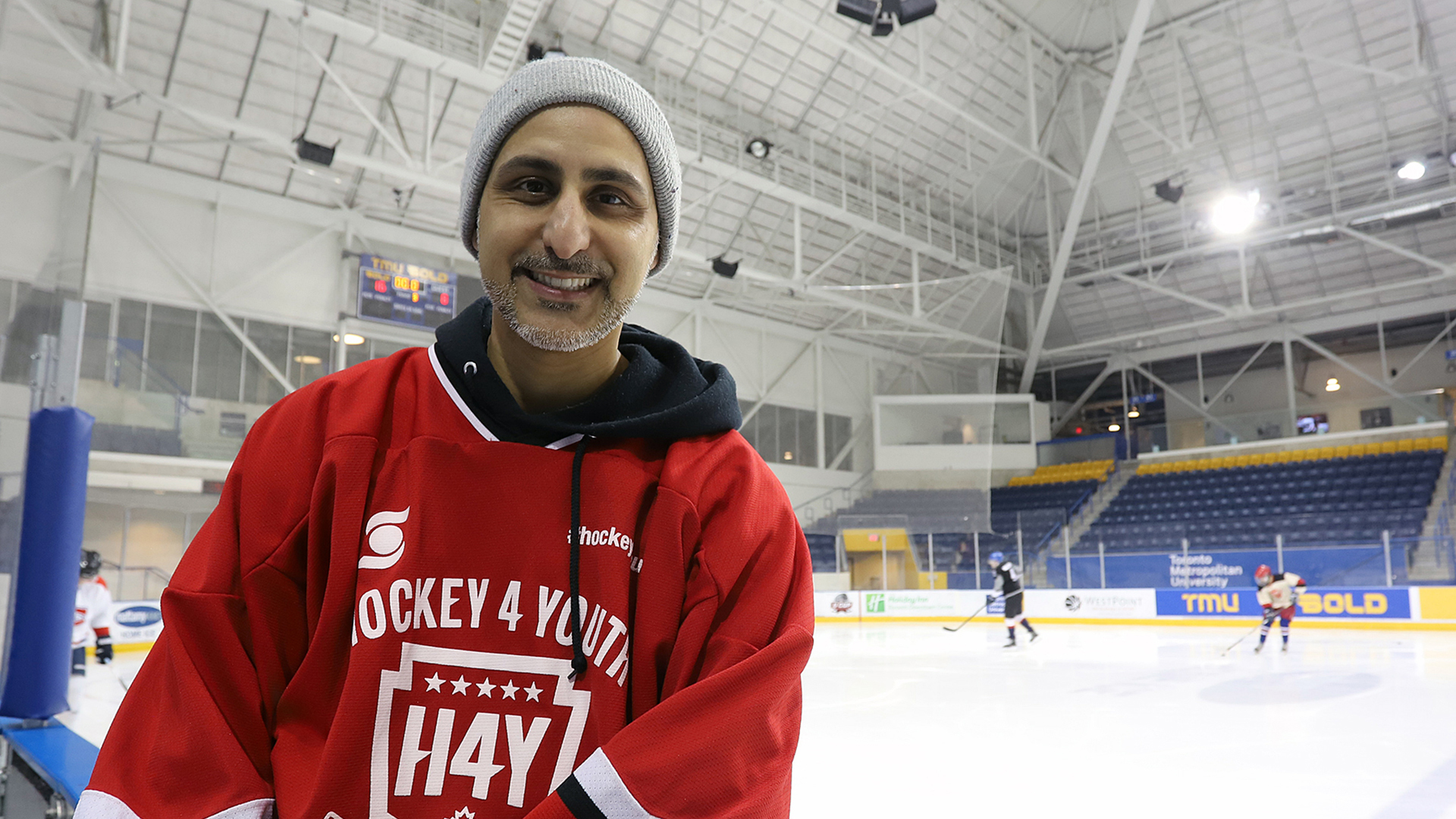
“There’s probably a wider gap now,” said Hasham, whose parents arrived in Canada in 1972 as refugees from Uganda.
He said a neighbour offered the family a set of used hockey equipment so six-year-old Moe could play. This act of generosity launched a lifelong love affair with the sport, including varsity hockey at the University of Northern B.C. in St. George.
“I know what it felt like for me,” said Hasham, whose organization is active in Toronto, Ottawa (co-ordinated by former H4Y player Firaol Yadetta), Hamilton, Montreal and Vancouver. They plan to expand into Vernon, B.C. and Windsor in early 2024.
H4Y removes “every barrier we can think of” to create a safe, fun, inclusive, free, and no-pressure opportunity for newcomers, said Hasham.
They’ve welcomed more than 700 kids from 40 different countries, and Hasham smiles at the surprised looks passers-by give the diverse group as they stroll down the street from Jarvis Collegiate Institute with hockey bags and sticks.
“We want them to be part of the next generation of what hockey looks like.”
Hasham said 80 per cent of HFY participants felt more socially included, and 94 per cent said hockey positively affects their mental health. It also represents successfully navigating the challenge of trying something new.
“That’s a life skill they’ll carry forever,” said Hasham.
University students like Farren are ideal H4Y volunteers, said Hasham, role-modelling academic and athletic achievement.
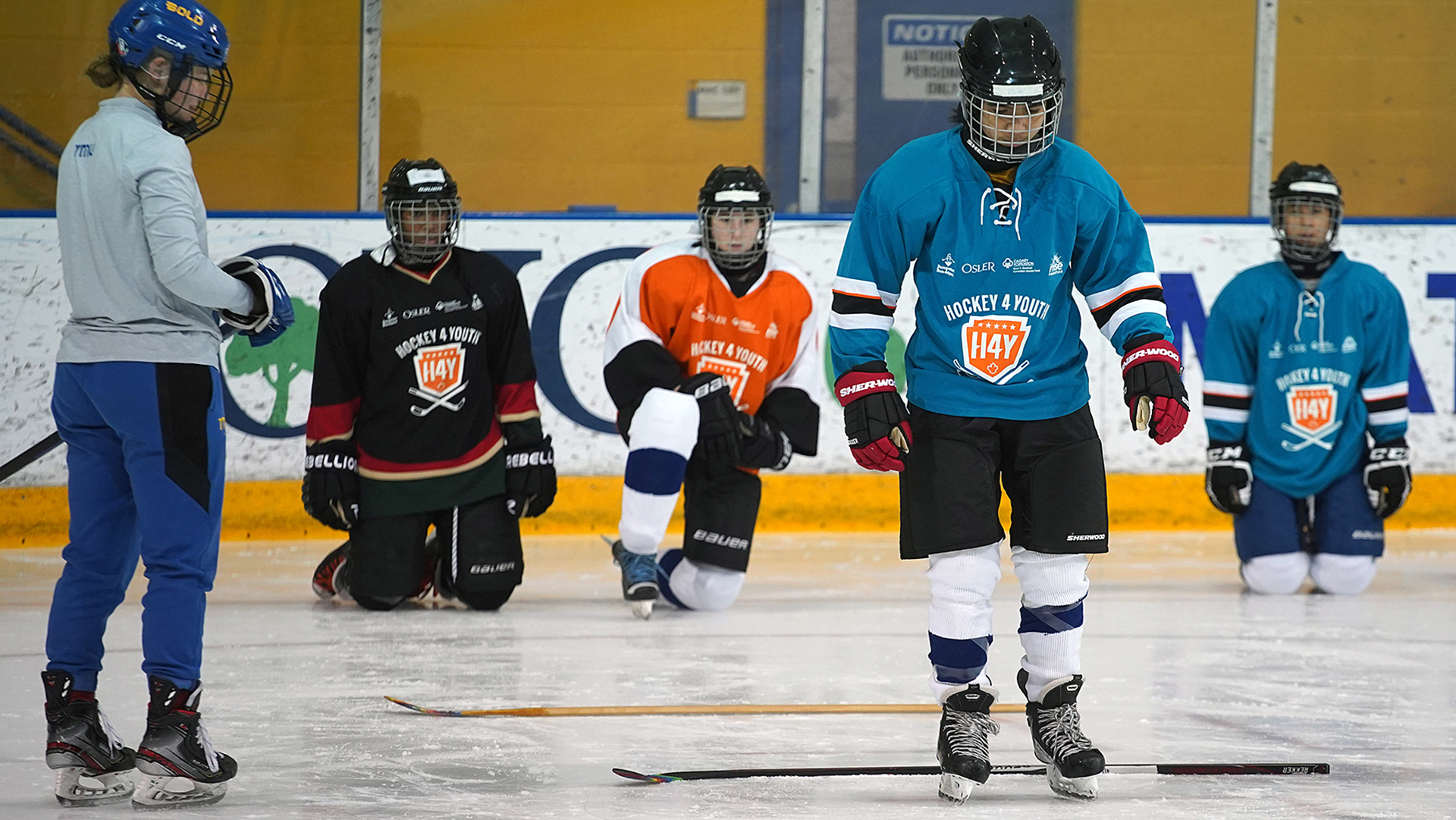
He added that student-athletes tend to be great volunteers, used to juggling schedules to be comparatively flexible, passionate about their sports, and close enough in age to be meaningfully relatable.
Female hockey players and coaches are critical for the program’s female-only sessions. Hasham said he enjoyed working with any player; however, he respects the added representation when they see themselves reflected in their on-ice leaders.
Teachers also provide volunteers and program partners backed by school board resources, said Hasham. Their empathetic skillset also dovetails with a fun, safe and inclusive environment for kids to play hockey.
Teachers, teacher candidates, and student teachers often also bring hockey experience to the rink, an additional complementary ability.
While they’re not strictly volunteers, support from the NHL, NHLPA and individual professional players, including “ambassadors” from racialized communities, has created a positive impact.
For example, a portion of Olympic gold medallist Sarah Nurse’s Golden Stick fund-raising collaboration with hockey equipment company CCM was directed toward H4Y.
At the same time, former NHL player Georges Laraque was scheduled to join an H4Y event in Montreal the following Friday.
“There’s not many of them, but they have a significant impact on our kids,” credits Hasham.
